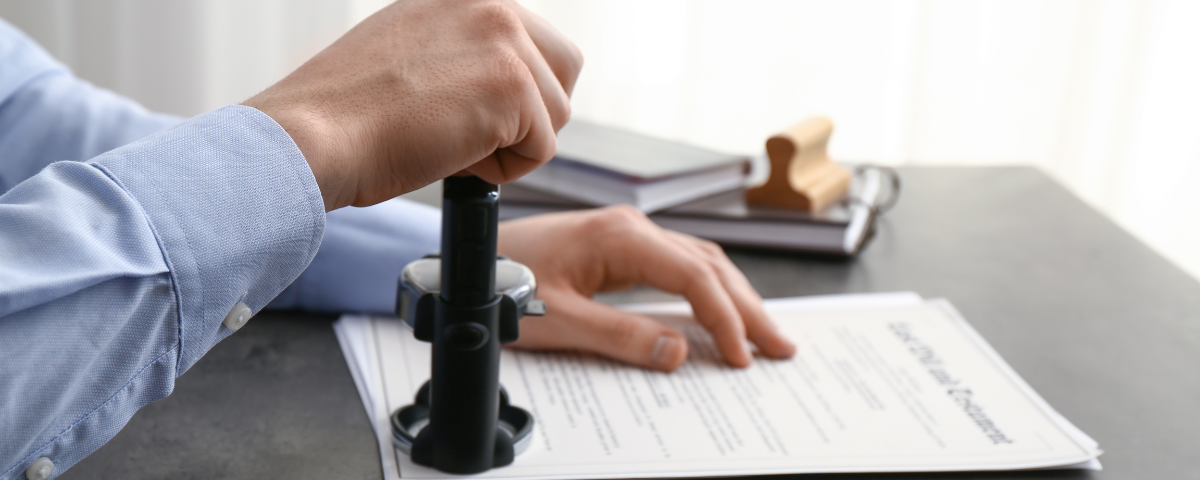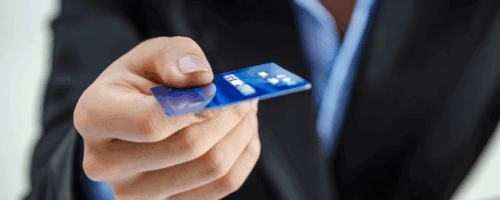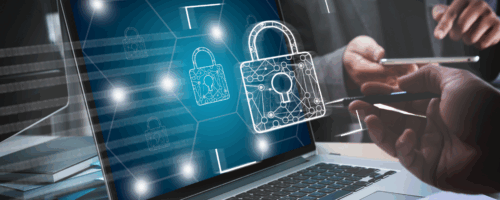Notarized documents are critical, not just fancy pieces of paper with an official stamp. They are legal armor, a shield against fraud and forgery.
Many people don’t understand what notarization means or why it matters. They think it’s just an extra step, a bureaucratic hoop to jump through. However, notarization is a powerful tool that can save your bacon when things get hairy. It’s a way to prove that you are who you say you are and that you signed a document of your own free will. In a world full of scams and shady dealings, that’s no small thing.
What is a Notary Public and What Do They Do?
You’ve probably heard of a document needing to be notarized, but what exactly does that entail? A notary public is a state-appointed official who serves as an impartial witness to the signing of important documents and the administration of oaths. They play a crucial role in deterring fraud and ensuring the authenticity of signatures on legal papers.
The Role of a Notary Public
The primary duty of a notary public is to verify the identity of the person signing a document. They do this by checking a valid form of identification, such as a driver’s license or passport. But that’s not all.
A notary also confirms that the signer understands the contents of the document and is entering into the agreement willingly, without intimidation or coercion. As the National Notary Association explains, “Above all, notarization is the assurance by a duly appointed and impartial Notary Public that a document is authentic, that its signature is genuine, and that its signer acted without duress or intimidation, and intended the terms of the document to be in full force and effect.”
In other words, a notary acts as a safeguard, providing an extra layer of protection against potential fraud or misunderstandings. Their seal of approval carries significant legal weight.
Types of Notarial Acts
Notaries can perform various notarial acts, each serving a specific purpose. The most common ones include:
- Acknowledgments – The signer appears before the notary and declares that they signed the document voluntarily.
- Jurats – The signer swears or affirms that the contents of the document are true, often done under penalty of perjury.
- Copy Certifications – The notary confirms that a reproduction of an original document is a full, true, and accurate transcription or reproduction.
As Adobe notes, “Odds are, at some point, you’ve encountered a notary or needed to get a document signed in front of one. The notarization process deters fraud and ensures that individuals or groups that are part of a transaction are authenticated. Sometimes referred to as ‘notarial acts,’ notarization is a three-part process performed by a certified Notary Public or someone holding a notarial certificate.”
State Requirements for Notaries
Each state has its own laws and requirements governing notaries. These rules cover aspects like:
- Eligibility criteria (e.g., minimum age, residency, background checks).
- Education and testing
- Length of commission term
- Fees that can be charged for notary services.
It’s important to note that while notaries are authorized to perform certain legal formalities, they are not allowed to provide legal advice unless they are also licensed attorneys. Their role is strictly limited to serving as an official witness.
So, the next time you’re handed a document that needs notarizing, know that the notary stamp is more than just an extra signature. It’s a symbol of integrity, authenticity, and legal safeguards – all thanks to the vital role played by notaries public.
Common Documents That Require Notarization
If you’re buying a house, starting a business, or granting someone power of attorney, chances are you’ll need to get a document notarized. But what exactly are these common documents that require a notary’s seal of approval?
Legal Documents
Many legal documents need to be notarized to be valid and enforceable. These include:
- Wills and trusts
- Powers of attorney
- Affidavits
- Deeds and property transfers
- Contracts and agreements
The notarization serves as proof that the person signing the document is who they claim to be and that they’re signing of their own free will. This helps prevent fraud and ensures that the agreement will hold up in court if necessary.
Financial Documents
Certain financial transactions also require notarized documents, such as:
- Loan documents
- Vehicle titles
- Bank documents
- Mortgage paperwork
Again, the notary’s job is to verify the signer’s identity and ensure they understand what they’re signing. This protects both the lender and the borrower by minimizing the risk of misunderstandings or fraudulent activity.
Personal Documents
Even some personal documents may need a notary’s stamp, including:
- Marriage licenses
- Custody agreements
- Guardianship papers
- Medical documents
- Passport applications
These documents often deal with sensitive personal matters, so the added layer of verification provided by a notary is crucial. In some cases, you might need an original document notarized, not just a copy. This is common for legal filings or certain financial transactions.
The notary will typically attach a certificate to the original document, stating the date of notarization and the type of notarial act performed (e.g., acknowledgment or jurat). They’ll also affix their official seal and signature.
So before you sign on the dotted line, take a moment to check if the document requires notarization. A quick trip to the notary public can save you a lot of headaches down the road by ensuring your important agreements are properly executed and legally binding.
How to Get a Document Notarized
So you’ve got a document that needs a notary’s stamp of approval. But what’s the process for actually getting it notarized? Don’t worry, it’s not as complicated as it might seem.
Finding a Notary Public
The first step is to locate a notary public. You have a few options:
- Check with your bank – many offer free notary services for customers.
- Visit your local UPS store or post office.
- Search online for mobile notaries who will come to you.
- Contact your local government offices (e.g., town clerk or county recorder).
- Search for an online notary partner
Some states even allow notaries to perform remote online notarizations, where you can connect with a notary via video chat and get your document notarized electronically. As the National Notary Association advises, “If you are a member of the public who needs to have a document notarized, there are several steps you can take to prepare for a smooth notarization. This short guide will explain what customers must bring to a Notary Public and what to expect when requesting notarial services.”
Preparing for Your Notary Appointment
Before your notary appointment, make sure you have:
- The unsigned document that needs notarizing.
- A valid, government-issued photo ID (e.g., driver’s license or passport).
- Any other signers who need to be present.
- Payment for notary fees (if applicable).
If you’re unsure what type of notarization you need (e.g., acknowledgment vs. jurat), ask the person or business who provided the document. The notary can explain the different types but cannot advise you on which one to choose.
The Notarization Process
At the notary appointment, you’ll need to:
- Present your ID to the notary for verification.
- Sign the document in front of the notary.
- Verbally acknowledge that you understand the document and are signing voluntarily.
- Wait for the notary to complete the notarial certificate and affix their seal.
The whole process usually takes just a few minutes, as long as you have all the necessary documents and identification. Adobe sums it up nicely: “Follow these simple steps to get your document notarized: Bring acceptable identification, tell the Notary what type of notarization you need, and sign the document in front of the Notary. The Notary will then complete the notarial certificate and affix their seal.”
And there you have it – your document is officially notarized and ready to go. While it might seem like an extra step, notarization plays a vital role in preventing fraud and ensuring the integrity of important legal and financial transactions. So the next time you need a notary, don’t stress – just follow these simple guidelines and let the notary do their job of verifying and authenticating your signature.
Key Takeaway:
Notaries are key in fighting fraud, checking IDs, and making sure you sign documents freely. They’re your go-to for legalizing important papers like wills or loan docs.
Need a notary? Check with banks or local stores. Bring ID and the document but don’t sign it yet – that happens in front of the notary.
Verifying the Identity of the Document Signer
When it comes to notarizing documents, verifying the identity of the signer is crucial. As a notary public, it’s their responsibility to ensure that the person signing the document is who they claim to be. This helps prevent fraud and protects all parties involved.
So, what counts as acceptable identification? In most cases, a valid government-issued photo ID like a driver’s license or passport will do the trick. The ID should be current (not expired) and have a clear photo that matches the appearance of the signer.
Other acceptable forms of ID might include a state ID card, military ID, or foreign passport with additional supporting documents, depending on your state’s requirements.
Preventing Identity Fraud
Preventing Identity Fraud
Preventing identity fraud is a top priority in the notarization process. Carefully examining each signer’s identification documents is crucial. If something seems off, additional proof of identity may be requested. In cases where the signer is not personally known, a “credible identifying witness” may be asked to vouch for their identity under oath. The key is to do everything necessary to keep the notarization process honest and straight.
The Importance of Notarization in Preventing Fraud
The Vital Role of Notarization
Notarization plays a vital role in preventing fraud and ensuring the authenticity of important documents. A notary public serves as an impartial witness to the signing of documents, verifying the identity and willingness of the signers.
One of the key ways notarization helps prevent fraud is by protecting against forgery. When a document is notarized, the signature is confirmed as genuine and made in the notary’s presence. This deters would-be forgers and provides a level of assurance to all parties that the document is legitimate – an important safeguard in a world where digital signature forgery is on the rise.
Ensuring the Authenticity of Documents
Notarization helps ensure the overall authenticity of a document. By verifying the identities of the signers and witnessing the signing process, the notary attests to the fact that the document is true, accurate, and properly executed. This is especially important for legal documents, contracts, and other papers that may be used as evidence in court.
Getting a document notarized is like adding a shield to it; this extra step can really save you from headaches and legal drama later on. As the National Notary Association puts it, “Notarization is the assurance by a duly appointed and impartial Notary Public that a document is authentic, that its signature is genuine, and that its signer acted without duress or intimidation, and intended the terms of the document to be in full force and effect.”
Remote Online Notarization: The Future of Notary Services
The world of notarization is evolving, and remote online notarization (RON) is leading the charge. With RON, document signers can get their documents notarized from anywhere, at any time, using audio-visual technology. Suddenly, everything’s within reach; it really flips the script on what ‘easy to get’ means.
So, how exactly does remote online notarization work? It’s actually pretty simple.
The document signer connects with a notary public via a secure video chat platform. The notary verifies the signer’s identity using remote presentation of a government-issued ID and other identity verification methods. Once the signer’s identity is confirmed, they digitally sign the document while the notary watches via webcam.
The notary then adds their electronic signature and notary seal to the document, making it officially notarized. The whole process is recorded and saved, creating a secure record of the notarization.
Benefits of Remote Notarization
Remote online notarization offers a ton of benefits for both signers and notaries. For signers, it’s all about convenience. No more scheduling appointments, traveling to a notary’s office, or taking time off work.
With RON, you can get your documents notarized from the comfort of your own home or office, 24/7. It’s especially handy for people in rural areas or those with mobility issues. For notaries, RON opens up a whole new world of business opportunities.
You can work with clients from anywhere in the country (or even the world), expanding your reach and customer base. Plus, with the ability to notarize documents outside of traditional business hours, you can offer more flexible service and accommodate a wider range of client needs.
Key Takeaway:
Notarizing documents is key to fighting fraud, making sure signers are who they say by checking their IDs. This stops forgery and confirms document authenticity, which is super important for legal stuff. With remote online notarization (RON), this whole process goes digital, offering 24/7 convenience from anywhere.
FAQs in Relation to Notarized
What does it mean to be notarized?
Being notarized means a notary public has verified your identity and witnessed you signing a document, adding an official seal.
How do I notarize a document in SC?
In South Carolina, find a local notary, bring your ID, sign the doc in their presence. They’ll handle the rest.
How do I notarize a document in Washington state?
To get something notarized in Washington state, locate a nearby licensed pro. Show up with photo ID and let them witness your signature.
How do I notarize a document in Illinois?
In Illinois? Seek out any commissioned officer of the law for help; remember to have that valid ID ready when you sign.
Conclusion
So there you have it, folks. Notarized documents are your best friend when it comes to protecting your legal rights. They’re not just a formality – they’re a necessity in today’s world.
Remember, a notary public is there to be an impartial witness, to verify your identity and ensure that you’re signing of your own free will. They’re like the superhero of the legal world, fighting fraud and forgery one signature at a time.
So the next time you need a document notarized, don’t groan or roll your eyes. Embrace the process, because it’s there to protect you. And who doesn’t want a little extra protection in this crazy world?
Now that you know the ins and outs of notarization, you’re ready to face any legal challenge that comes your way. You’ve got the knowledge, you’ve got the power, and you’ve got the notary on your side.







 Your Privacy Choices
Your Privacy Choices


